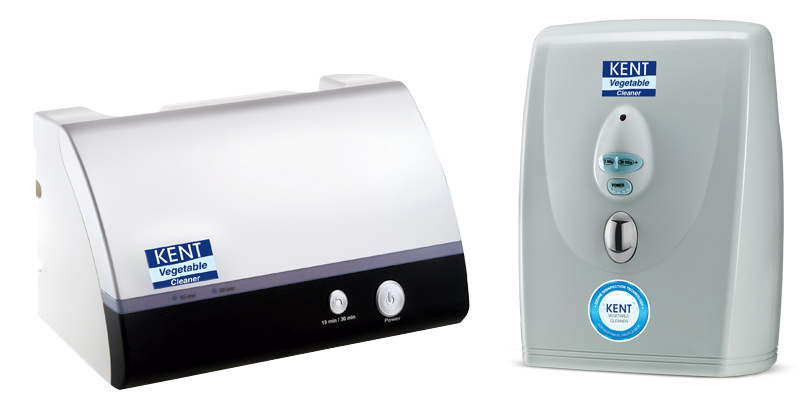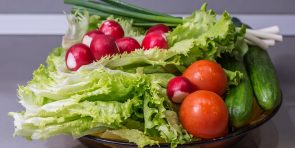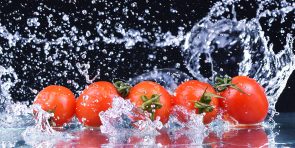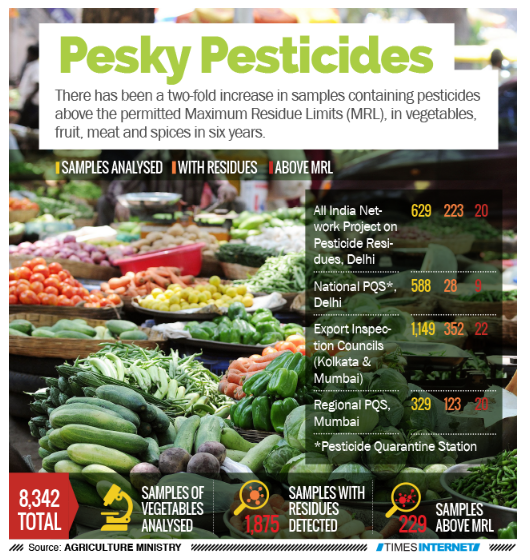Eliminate Insecticides & Pesticides with KENT Fruit and Vegetable Purifier
With the increase in the population, the need for food has also increased and this has paved the way for adopting new methods to enhance food production. In this concern, fertilizers, insecticides, pesticides, and other chemicals are being used to ensure that the production of food products gets enhanced. These are also being used in order to keep the insects and other pests away from damaging the crops. So, in the process of keeping away the insects from the crop, you are consuming harmful food. No one ever thought that they can be encountered several diseases, but KENT did. Thus, to ensure that you remain free from deadly diseases, the brand has introduced KENT Fruit and Vegetable Purifier.
Harmful Effects of Insecticides and Pesticides in Fruits and Vegetables
Consuming the fruits & vegetables that are added with pesticides and other harmful chemicals can give birth to different diseases that can include tiredness, muscular pain, cholesterol, sugar and etc. It has been studied that consumption of foods that are grown using chemicals and pesticides, can disturb your hormones which can easily increase infertility low sperm count, PCOD, and even incapability or birth defects as well. It can also more likely develop brain cancer and even lung cancer as well. In this concern, WHO has estimated that each year, 3 million cases are recorded of pesticide poisoning and around 220,000 people die as well.
Studies have found that pesticide poisoning would result in different diseases and symptoms as well. These are mentioned below:
- Nausea, abdominal cramps
- Diarrhea, dizziness, anxiety
- Memory disorders, skin conditions
- Depression, miscarriage, birth defects
- Cancer, Neurological condition and etc.

In most cases, you would find that the foods that are grown up using pesticides & insecticides affect infants, growing children, pregnant women, nursing mothers, and childbearing women as well. A study says that children are more accountable for health-related diseases.
Read Also : Harmful Effects of Pesticides on Fruits & Vegetables
How KENT Ozone Vegetable and Fruit Purifier is Helpful?
We all wash fruits and vegetables before consuming them either raw or cooked. But, do you know this is not enough because these are subjected to the extensive usage of insecticide, pesticides, and many other harmful chemicals. So, just rinsing them using simple tap water would not make them clean. Still, the residue of pesticides and insecticides remains in the food we eat. Thus, to ensure that people consume fresh and pure fruits and vegetables KENT has introduced Vegetable and Fruit Purifier in India. The purifier uses revolutionary ozone disinfection technology that helps in cleaning fruits and vegetables thereby providing you foods that are safe for consumption.

The ozone disinfection technology effectively kills the virus, bacteria, fungus, and many other pathogens from the surface of the vegetable and fruits and would allow you to have fresh foods every time. KENT has both tabletop and wall-mounted fruit and vegetable cleaner that hold the capability to remove all the harmful chemicals and pesticides and germs and make it fresh to be consumed.
Features of Vegetable Purifiers:
- Helps in removing pesticides and insecticides
- Cleans the antibiotics and hormones from fruits and vegetables
- Keeps the fruits and vegetables fresh and deodorized
- Kills bacteria and viruses
- Removes hormones from meat
- Increase the antioxidant values of eatables
You can use it very easily as all you need to do is to just simply put the vegetables, fruits, or meat in a bowl and filled it with water. After this, you need to just drop the ozone tube into the bowl and set the automatic timer according to your requirement. The Ozone Purifier would automatically stop after it passes the set timer thereby purifying and freshening the eatables that are best to be consumed. It removes the pesticides and chemicals from the surface of the fruits and vegetables and makes the eatables completely safe for consumption.
Conclusion:
So, if you want to ensure that you consume fresh fruits and vegetables that are free from chemicals, then it is better that you install KENT Fruit and Vegetable Purifier. You can opt for either table-top or wall-mounted according to your need and preferences and remove the chemicals from the foods thereby making them fresh to consume.
Frequently Asked Questions
1. What pesticides are used in vegetables?
Various pesticides are used in vegetable farming to protect crops from pests and diseases. Common types include organophosphates, pyrethroids, neonicotinoids, and herbicides. These chemicals are employed to prevent insect infestations, fungal growth, and weed competition. However, it’s crucial to use pesticides responsibly, follow safety guidelines, and wash vegetables thoroughly before consumption to minimize potential health risks. Organic farming often relies on natural or non-synthetic alternatives to conventional pesticides.
2. How much pesticides are in fruits and vegetables?
The level of harm associated with pesticides varies, depending on the specific chemical and its use. Organophosphates and carbamates can be highly toxic to humans, particularly in concentrated forms. Neonicotinoids have raised environmental concerns due to their impact on pollinators. Glyphosate has faced controversy over its potential carcinogenicity. The assessment of harm depends on factors like toxicity, exposure, and regulatory standards, making it essential to use pesticides responsibly and follow safety guidelines.
3. What are the 4 types of pesticides?
The four main types of pesticides are:
1. Insecticides: Target and control insects and arthropods.
2. Herbicides: Used to manage and eliminate weeds and unwanted plants.
3. Fungicides: Designed to prevent, mitigate, or eradicate fungal diseases in plants.
4. Rodenticides: Employed to kill or control rodents such as rats and mice.
Each type of pesticide serves a specific purpose in protecting crops and public health but must be used carefully to minimize risks.




